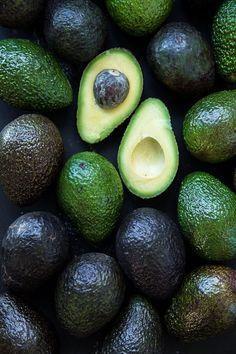Mexico's avocado sector is threatened by criminal violence
VU
Today, the region of Michoacan is heavily affected by drug-related violence. Avocado growers are getting organized into self-defense groups to combat criminal groups and protect their business.
Michoacan is the main producing region which provides three-quarters of the total production volume. It is also the only state with the phyto-sanitary certification to export avocados to the U.S.
Mexico’s current share of the global avocado market is 30%, which makes it the number one avocado producer and exporter in the world.
Mexico’s avocado production and exports have experienced a significant rise in recent years: in 2010, the value of its avocado international supplies was $666 million; in 2019, this value was almost 5 times as much at $3.2 billion. The actual avocado season (which started in July 2020 and will finish in June 2021) will not be an exception, as exports this season have broken records again: avocado export volumes in the second half of 2020 were 11.8% higher than the previous year, according to APEAM, avocado producer and exporter association.
The money involved in the avocado business has also attracted criminal groups to Michoacán. Over the last years, the Cártel Jalisco Nueva Generación (CJNG), los Viagras and Cárteles Unidos have increased their presence in the state and have resorted to murders, shootings, kidnappings, shootings, and extortion in order to obtain control over the land and its resources. These cartels threaten the local population, the majority avocado growers, to give up their land and products. Cartels also fight against each other, often with the domestic population in the middle of competing cartels. This violence could also destroy supply chains, due to the US market’s dependence on Michoacán for its avocado supply.
3.000 of people have faced the growing violence of such criminal groups and have started to organize themselves in a self-defense group, called United Villages (Pueblos Unidos in Spanish). In order to protect themselves and their incomes, and in absence of effective protection from the authorities, they took up arms and set up checkpoints across the region. Citizens setting up blockades of highways and railways that links the region to the Lazaro Cardenas port, have also become more and more common, threatening supply chains not only of avocados but also blackberries and other products.
2 weeks ago, 70 members of Pueblos Unidos put up a week-long railway blockade in the Taretan municipality of Michoacan to force authorities to respond after the disappearance of one of its members, causing an estimated daily cost of over 2 million euro.
Between 75 % and 80 % of Mexican avocado exports are destined to the U.S. In 2019, the Netherlands was the 6th biggest importer of their avocados, after the U.S, Canada, Japan, Honduras, and Spain. While the share of Mexican avocados in the Dutch avocado imports has increased, the majority of avocados imported by the Netherlands are from Peru, Chile, Colombia, and South Africa.
source: mexiconewsdaily.com, agroberichtenbuitenland.nl





